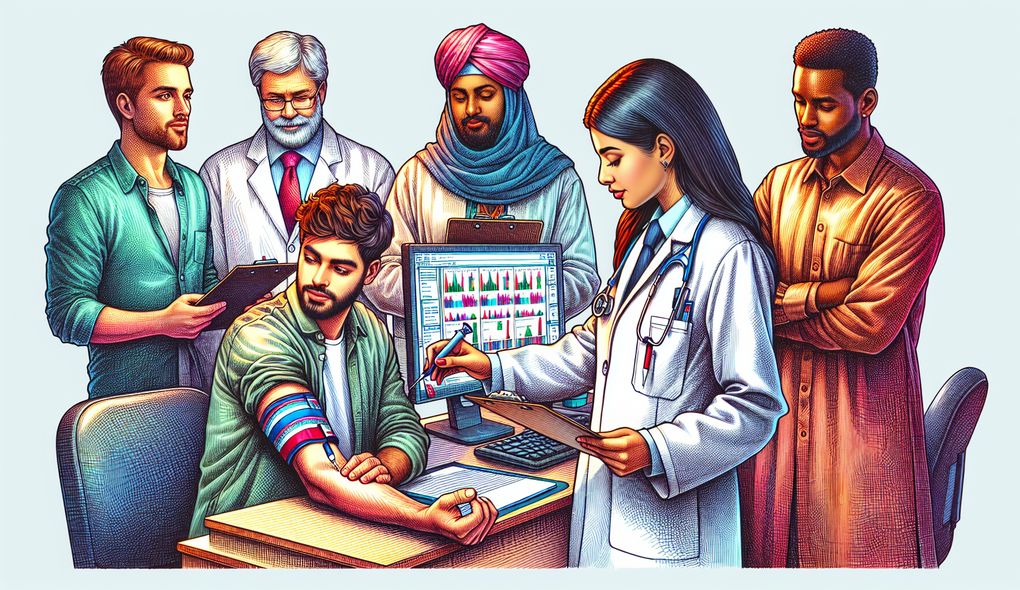What is your strategy for effectively communicating with clinical staff, patients, and other stakeholders in a clinical trial?
INTERMEDIATE LEVEL

Sample answer to the question:
My strategy for effectively communicating with clinical staff, patients, and other stakeholders in a clinical trial is to prioritize clear and concise communication. I believe in establishing open and transparent channels of communication to ensure that everyone involved in the trial is well-informed and understands their roles and responsibilities. This includes regular meetings, emails, and phone calls to address any questions or concerns. Additionally, I believe in practicing active listening and empathy to understand the needs and perspectives of clinical staff, patients, and stakeholders. By actively engaging with them and addressing their concerns, I can build trust and maintain effective communication throughout the trial.
Here is a more solid answer:
My strategy for effectively communicating with clinical staff, patients, and other stakeholders in a clinical trial centers around clear and concise communication, active listening, and empathy. I believe in establishing regular communication channels, such as weekly meetings and email updates, to keep everyone informed about the progress of the trial and address any questions or concerns. I also prioritize active listening to understand the needs and perspectives of clinical staff, patients, and stakeholders. By actively engaging with them, I can address their concerns effectively and build trust. Additionally, I ensure that I am well-versed in medical terminology and study protocols to communicate effectively and accurately. By understanding the study protocols, I can provide clear instructions and guidance to the clinical staff and ensure that the trial is conducted according to the required standards.
Why is this a more solid answer?
The solid answer provides a more comprehensive strategy for effective communication in a clinical trial. It includes specific details about regular communication channels, active listening, and understanding medical terminology and study protocols. However, it can still be improved by providing examples of past experiences or accomplishments related to effective communication in similar roles.
An example of a exceptional answer:
My strategy for effectively communicating with clinical staff, patients, and other stakeholders in a clinical trial is based on clear and consistent communication, active engagement, and a patient-centered approach. I believe in establishing a communication plan at the beginning of the trial, outlining the preferred channels of communication and regular communication milestones to keep everyone informed and aligned. I actively listen to the needs and concerns of clinical staff, patients, and stakeholders, ensuring that their input is valued and integrated into the decision-making process. I also prioritize patient education and empowerment by providing clear and understandable information about the trial procedures and expectations. To ensure effective communication, I stay up-to-date with medical terminology and study protocols, enabling me to communicate confidently and accurately with all parties involved. In past roles, my effective communication strategies have resulted in increased participant satisfaction and improved collaboration among clinical staff and sponsors.
Why is this an exceptional answer?
The exceptional answer provides a comprehensive and well-developed strategy for effective communication in a clinical trial. It includes specific details about establishing a communication plan, active engagement, patient-centered approach, and staying updated with medical terminology and study protocols. It also mentions past experiences or accomplishments related to effective communication, showcasing the candidate's expertise and success in this area.
How to prepare for this question:
- Familiarize yourself with the study protocols and medical terminology commonly used in clinical trials. This will enable you to communicate effectively and accurately with clinical staff, patients, and other stakeholders.
- Practice active listening and empathy. Demonstrating genuine interest in the needs and concerns of others will help build trust and improve communication.
- Develop a communication plan template that you can adapt for different clinical trials. This will demonstrate your proactive approach and organizational skills during the interview.
- Prepare examples of past experiences or accomplishments where your effective communication skills contributed to the success of a clinical trial. Be ready to share specific details, such as challenges faced and outcomes achieved.
- Stay updated with the latest advancements and best practices in clinical trial communication. This will show your commitment to continuous learning and improvement in this area.
What are interviewers evaluating with this question?
- Communication skills
- Interpersonal skills
- Engagement
- Problem-solving
- Medical terminology
- Study protocols

